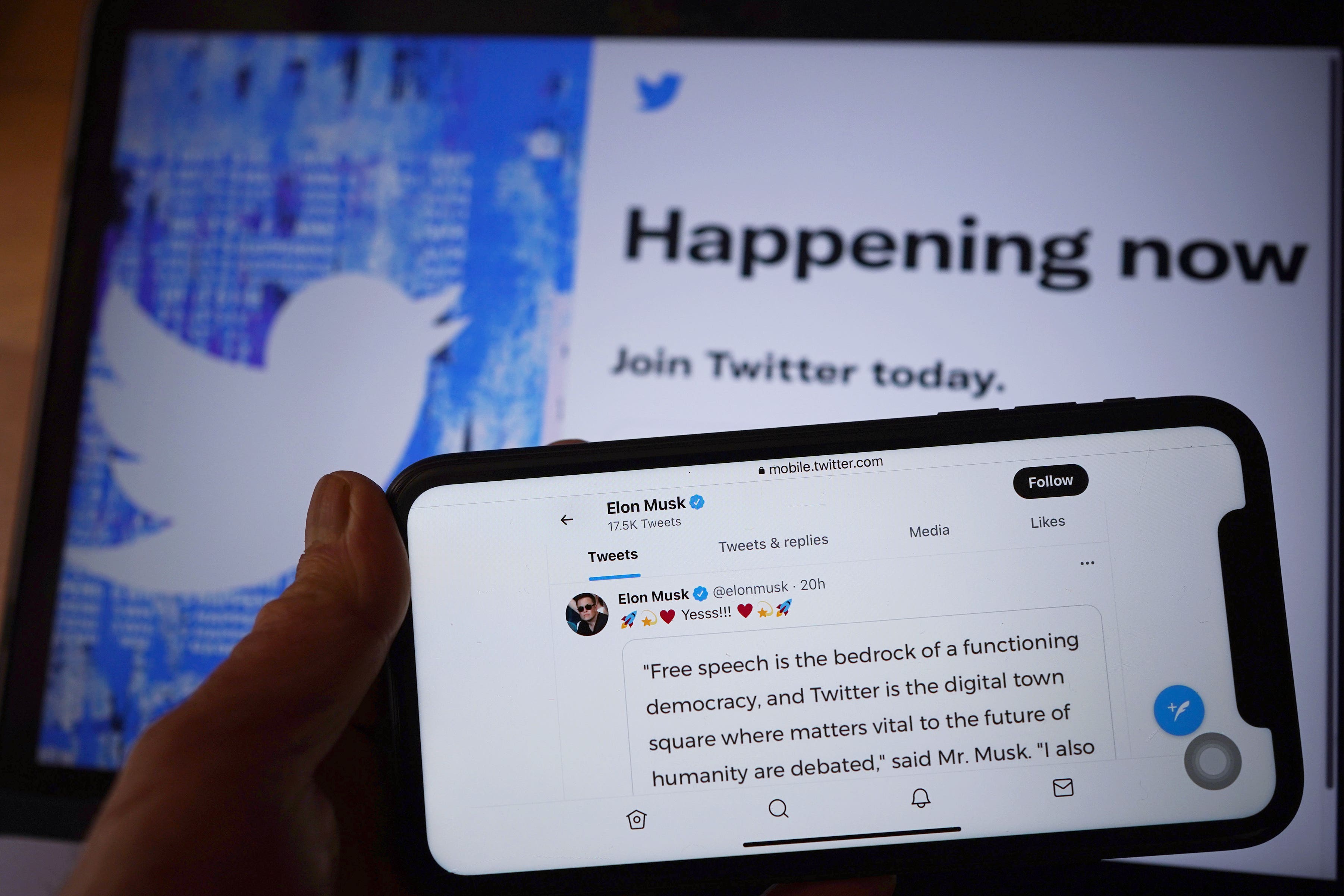Can Elon Musk’s Twitter co-exist with the Online Safety Bill?
The billionaire Twitter owner has spoken of loosening content moderation on the platform, which would clash with the upcoming social media laws.

Your support helps us to tell the story
From reproductive rights to climate change to Big Tech, The Independent is on the ground when the story is developing. Whether it's investigating the financials of Elon Musk's pro-Trump PAC or producing our latest documentary, 'The A Word', which shines a light on the American women fighting for reproductive rights, we know how important it is to parse out the facts from the messaging.
At such a critical moment in US history, we need reporters on the ground. Your donation allows us to keep sending journalists to speak to both sides of the story.
The Independent is trusted by Americans across the entire political spectrum. And unlike many other quality news outlets, we choose not to lock Americans out of our reporting and analysis with paywalls. We believe quality journalism should be available to everyone, paid for by those who can afford it.
Your support makes all the difference.Elon Musk’s desire to make Twitter an unfiltered “common digital town square” now he has taken over the platform is likely to face significant challenges from looming tech regulations.
The billionaire has repeatedly expressed his support for “absolute free speech” and a belief that as long as something is legal, it should be allowed to be shared on Twitter and stay there.
This has sparked concerns among campaigners that Twitter could become a more abusive and polarised place.
But this approach, if enacted now Mr Musk has control of Twitter, would likely soon come into conflict with the UK’s Online Safety Bill, the set of proposals designed to introduce substantial regulation to social media platforms for the first time, after years of relying on firms self-regulating their sites.
The much-delayed Bill is expected to be reintroduced to Parliament shortly, and at its heart, it will require platforms to identify and remove illegal content to protect users, but it will also require the largest sites, Twitter included, to take action against other forms of content which have been designated “legal but harmful”.
This could refer to different forms of abusive and harassment-based material, as well that linked to self-harm or disinformation, which are not currently illegal, but each site will have to lay out in their terms of conditions how they plan to tackle each named type of online harm and what systems they will put in place to do this.
It is in this area where Mr Musk’s approach could fall foul of the Online Safety Bill, having stated that his belief is the content moderation line should only be drawn at illegal posts and everything else should be allowed as part of open debate.
He has argued that users should be able to tailor their experience and simply hide content they do not wish to see, and while the Online Safety Bill will require firms to give their users more tools to empower and protect themselves for certain types of material, it still expects platforms to remove content designated as harmful to stop it spreading further, rather than simply hiding it as Mr Musk has previously suggested.
Failure to abide by the proposed rules of the Online Safety Bill, which will see Ofcom introduced as the regulator for the sector, could result in fines potentially running into billions of pounds or even access to the platform being blocked.
The Bill currently also contains provisions that could make company managers criminally liable if they fail to respond to data requests from the regulator, a measure that some campaigners would like to see extended to all rule breaches under the Bill as a way of better incentivising platforms to act against online harms.
While politicians in the UK have been relatively quiet on the takeover so far, those in the EU have already fired warnings directly at Mr Musk as he assumes his new role at the top of a social media firm, reminding him of the need to comply with the EU’s own impending social media regulations.
Responding to Mr Musk’s “the bird is freed” tweet, Thierry Breton, the commissioner for the internal market of the EU said: “In Europe, the bird will fly by our rules”.
As the takeover moved closer, Mr Musk did appear to concede some ground on the issue, noting in a message aimed at Twitter’s advertisers that “Twitter obviously cannot become a free-for-all hellscape, where anything can be said with no consequences” and that the site would follow “the laws of the land” and that it “must be warm and welcoming to all”.